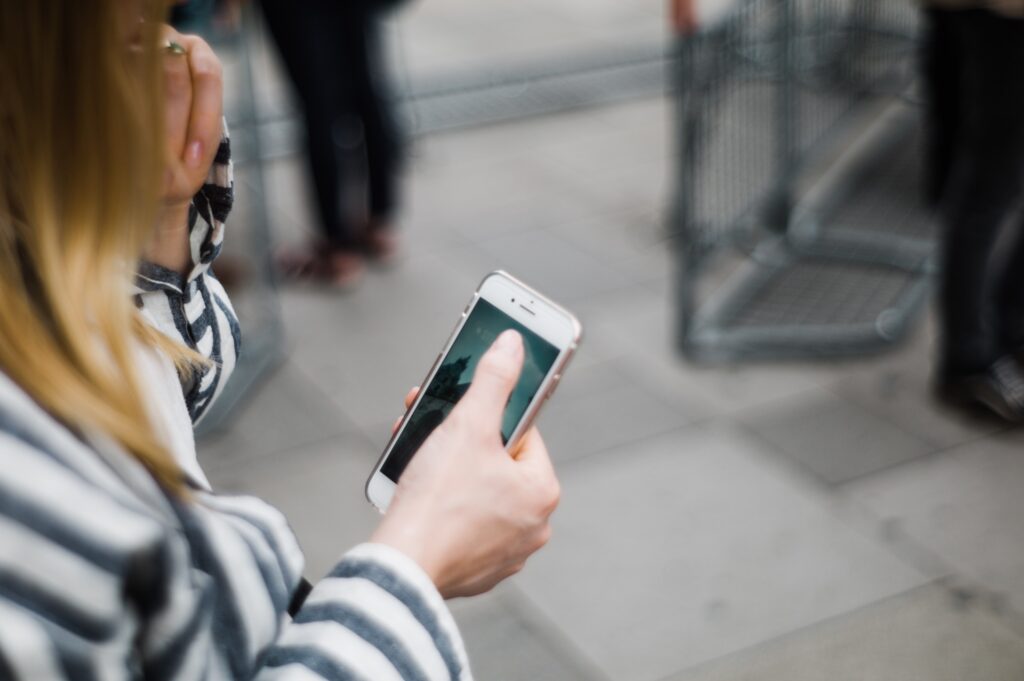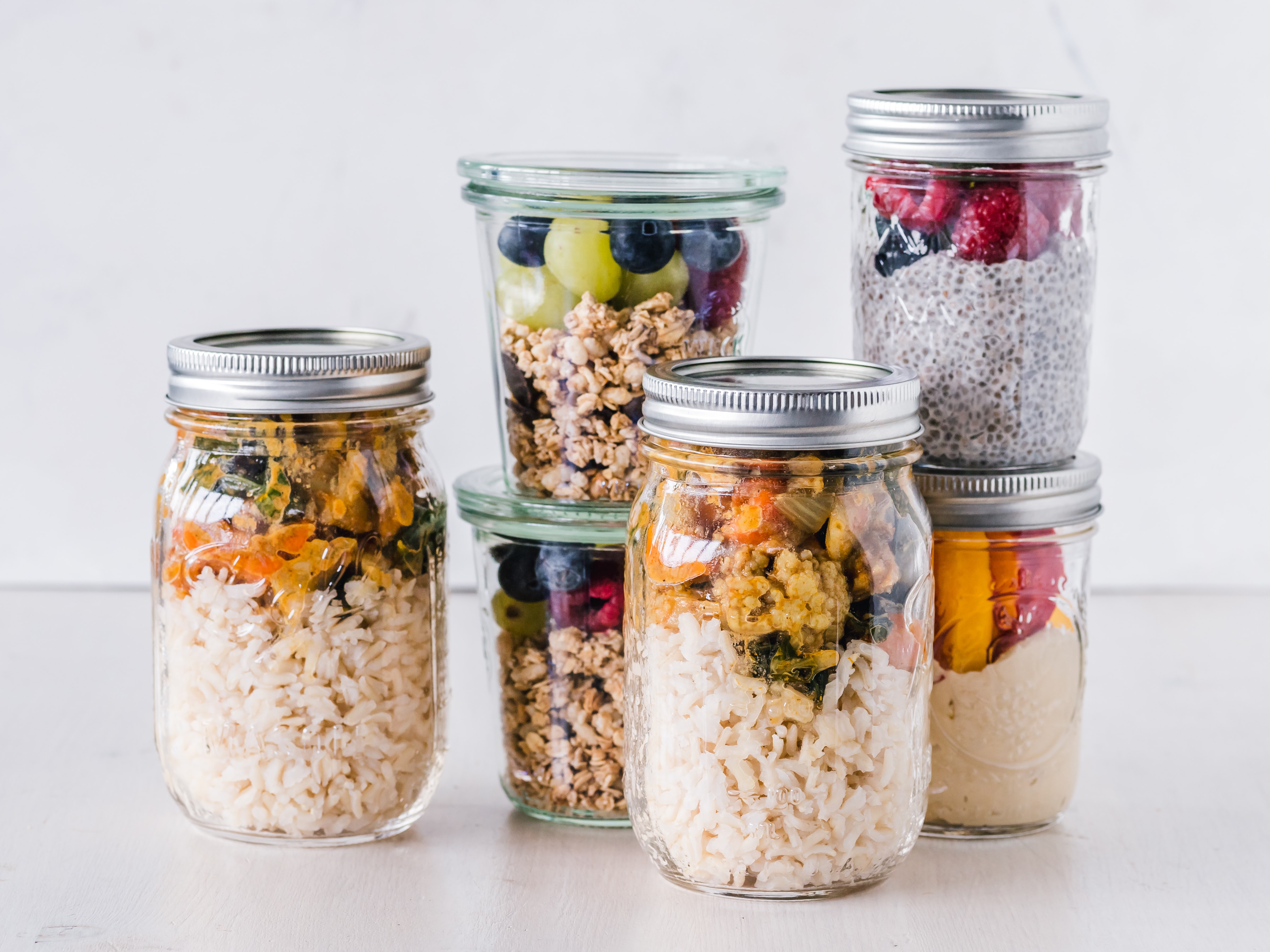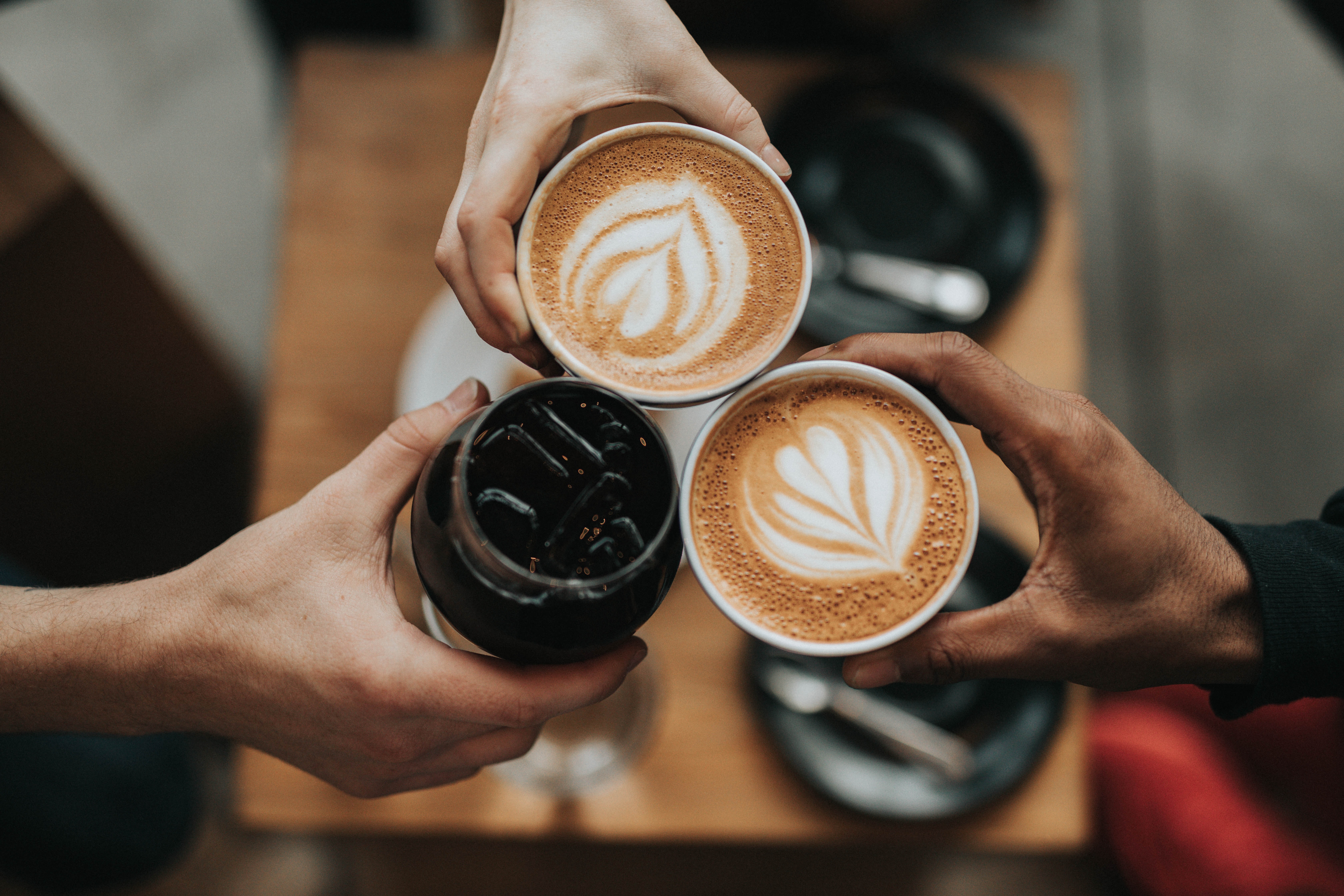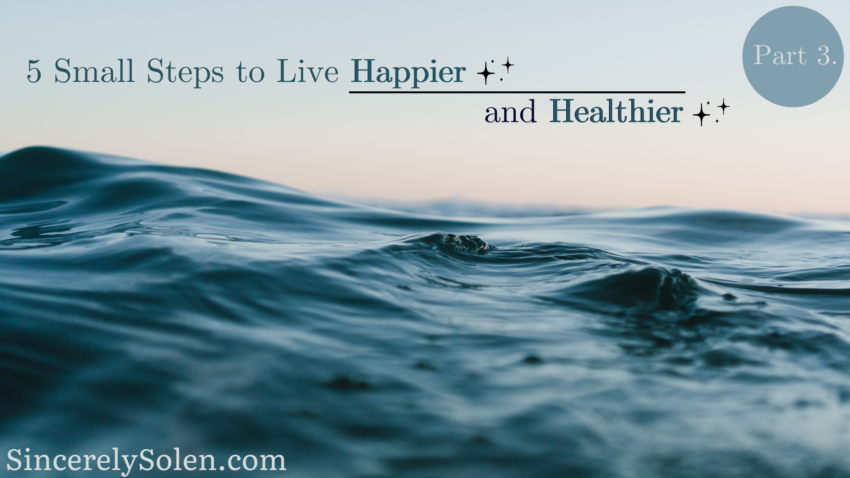5 Small Steps to Live Healthier & Happier Part 3
- Disinfect your phone once a week
What do you think’s the dirtiest thing you touch every day? Did you think of your cell-phone? Even if it’s not the dirtiest, chances are it’s pretty dirty- just think about how many times a day you pick it up and put it down. All those gross germs on your fingers can literally be transferred to your cell phone when you touch it (gag!) A University of Arizona Study found that cell phones carry more bacteria than most toilet seats. And another study from the University of Tartu looked at the cell phones of 27 secondary students and found the median number of bacterial gene copies on a cell phone was over 17,000. GROSS.
Hartford Health recommends cleaning your phone with a using a 70 percent rubbing alcohol solution applied to a cotton ball or piece of cloth. Just don’t put cleaning solution directly on your phone screen! You’ve been warned!

2) Stop storing your leftovers in plastic
Many plastics contain chemicals that are harmful to our bodies. They can severely disrupt our endocrine system, a.k.a. our hormone system by mimicking and interfering with our hormones, according to the National Institute of Environmental Health Sciences. A common chemical you may have heard of is BPA, thanks to many water bottles now boasting “BPA free” on their labels. But BPA is just one of the many chemicals in plastic that can harm our health. A study done by the Endocrine Society in 2020 found that
“One hundred and forty four chemicals or chemical groups known to be hazardous to human health are actively used in plastics for functions varying from antimicrobial activity to colorants, flame retardants, solvents, UV-stabilizers, and plasticizers.”
–Endocrine Society
You don’t have to go out and buy an all new set of tupperware if you don’t want to- just get creative and use what you already have! I reuse the jars from marinara and salsa to store salads and soups in. You could also use a bowl and add a rubber band & paper towel to make your own lid. Or wrap your leftovers up in parchment paper!

3) Get outside first thing in the morning for a circadian walk.
Everyone has a circadian rhythm that works kind of like a clock to tell our bodies when to produce energy during the day, and when to shut down at night. Here’s a scientific definition from the National Institute of General Medical Sciences (NIH):
“Circadian rhythms are physical, mental, and behavioral changes that follow a 24-hour cycle. These natural processes respond primarily to light and dark and affect most living things, including animals, plants, and microbes.”
Your circadian rhythm working properly is SO important because it affects some really big things, like:
- Hormone release
- Eating habits and digestion
- Body temperature
- Sleep patterns
Certain things can disrupt or thrown off your natural circadian rhythm, like looking at devices at nighttime, jet lag, or untraditional work shifts when you’re asleep during the day and awake at night, according to NIH. That’s because your circadian rhythm is really affected by light and darkness.
So an easy way you can help your body reset it’s circadian rhythm is going for a walk outdoors in the morning and exposing your eyes to outdoor light. Even if there’s no sunshine out that day, still take that walk anyways! This helps your body kick into gear for the day by telling your body that it’s daytime aka, it’s time to rise and shine!
4) Don’t drink coffee on an empty stomach if you’re sensitive to caffeine
How many times have you heard it’s bad to drink coffee on an empty stomach but ignored it? #guilty! I’ve done the same thing, but I try not to anymore because I learned from this scientific study that caffeine can increase your cortisol (aka the main stress hormone) levels if your cortisol is already at a high number (which cortisol naturally peaks in the early morning to help you wake up).

And while coffee has some health benefits, it can also trigger heartburn if taken on an empty stomach. Certain foods/drinks have an effect on your lower esophageal sphincter, which is basically a valve that opens and closes to let things go down to your stomach from your esophagus. Once the food/drinks are in your stomach, the valve should close. The problem is, certain foods and drinks like coffee can relax that valve, aka esophageal sphincter, which can cause “…failure of the muscle valve (called the lower esophageal sphincter) between the stomach and the esophagus to close properly,” (American Society for Gastrointestinal Endoscopy). I’m very, very sad to say coffee is one of them. So if you feel jittery or get heartburn from coffee, and you’ve been having it first thing without food, try snacking or eating a meal before to see if you feel better. Because everybody deserves to enjoy their coffee in peace!

5) Avoid touching receipts
Did you know that thermal printed receipt paper is usually coated with BPA or BPS, which are both endocrine disrupters? Endocrine disrupters are chemicals that interfere with your body’s hormones, aka your endocrine system.
The BPA and BPS on receipt paper can get absorbed through the skin, and even at low doses it can be harmful to human health- in 2007 five panels of experts met and analyzed data that concluded
“The wide range of adverse effects of low doses of BPA in laboratory animals exposed both during development and in adulthood is a great cause for concern with regard to the potential for similar adverse effects in humans. Recent trends in human diseases relate to adverse effects observed in experimental animals exposed to low doses of BPA. Specific examples include: the increase in prostate and breast cancer, uro-genital abnormalities in male babies, a decline in semen quality in men, early onset of puberty in girls, metabolic disorders including insulin resistant (type 2) diabetes and obesity, and neurobehavioral problems such as attention deficit hyperactivity disorder (ADHD).”
You can view that scientific article here, which is sponsored by the National Institute of Environmental Health Sciences, National Institute of Dental and Craniofacial Research, US-EPA and Commonweal on the estrogenic environmental chemical bisphenol A (BPA).
And there you go friends! 5 more steps I hope you adopt into your days to have the best week ever! See you back here for the next one!
Sincerely,
Solen xxx

